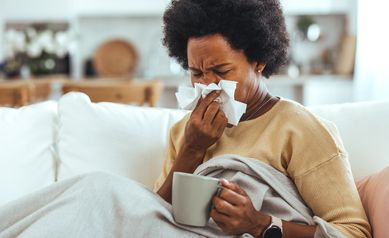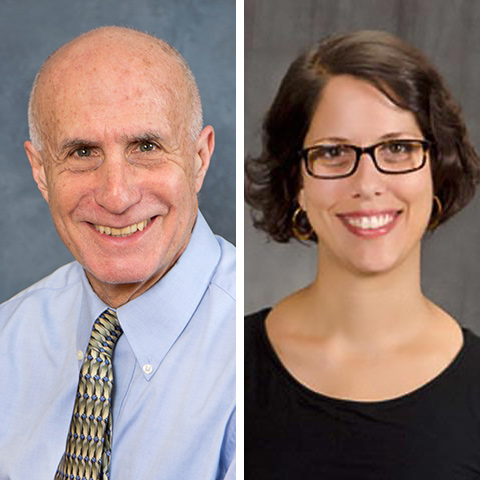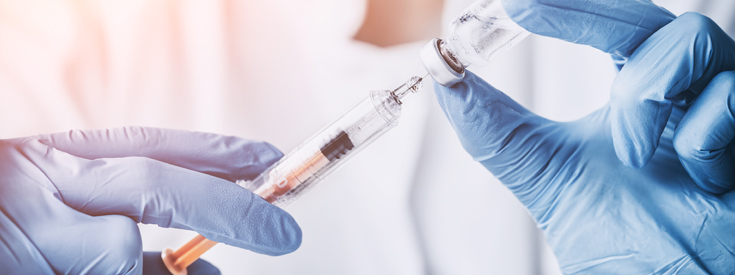Welcome from the Chief
 Infectious diseases have been major public health threats throughout history. Great strides have been made in the treatment and prevention of infectious diseases with antibiotics and vaccines however, new challenges continue to arise.
Infectious diseases have been major public health threats throughout history. Great strides have been made in the treatment and prevention of infectious diseases with antibiotics and vaccines however, new challenges continue to arise.
The URMC Infectious Diseases Division offers expertise in a wide range of areas including viral diseases such as Human Immunodeficiency Virus (HIV), Influenza, Respiratory Syncytial Virus (RSV) and Human Papilloma Virus (HPV) as well as bacterial infections including Methicillin Resistant Staphylococcus aureus, pneumococcus and Clostridium difficile and immunology. Our team has expertise in the care of transplant related infections, complex cardiac infections, infections in long term care facilities, sexually transmitted diseases and B cell immunology. Our division includes faculty at Highland, Rochester General and Unity Hospitals and maintains active clinical, research and educational missions.
Paul R. Bohjanen, MD, PhD
Chief, Infectious Diseases Division
Co-director, Translational Immunology and Infectious Diseases Institute
Division News
From the Newsroom
November 7, 2025
Spreading Knowledge, Not Disease at IDWeek 2025
March 14, 2025
URMC Joins National Network for Bronchiectasis and NTM Care
November 6, 2024
Three Ways You Can 'Check Your Health' with WDKX, University of Rochester

Flu Facts vs. Fiction: Your Guide to the 2025 Flu Season

Flu-Proofing Your Home: Proven Ways to Protect Your Family This Season

When to Get Your Flu Shot: 2025 Flu Season
Our Research Centers
Prevention Centers and Initiatives

Spotlight: The Superheroes of Stopping COVID-19 Transmission in its Tracks
From keeping on top of the latest COVID-19 guidance to tracking infections and helping UR Medicine manage its PPE, our Infection Prevention team has been at the heart of our COVID-19 response. Led by Paul Graman, M.D., professor of Medicine in Infectious Diseases and hospital epidemiologist, and Brenda Tesini, M.D., associate hospital epidemiologist and assistant professor of Medicine and Pediatrics in Infectious Diseases (both pictured right), the team consists of nine infection preventionists, many of them nurses.
"They are the foot soldiers who are really doing the front-line work," Graman said. "They track our COVID-positive patients and those who might have been exposed to them in a significant way, whether they are staff members, health care workers or other patients. It's a full-time job for several people. Their work allows us to determine who needs to be quarantined, which helps slow the spread of COVID-19, allowing URMC to manage the caseload."
Graman and Tesini, meanwhile, have been the public face of our Infection Prevention effort, fielding questions, providing reassurance and guiding decisions on everything from what PPE is needed in a given situation to testing protocols.
"It has been a challenging time, but we’re inspired by the dedication of everyone at URMC who has been going above and beyond their pre-COVID roles during this pandemic," Tesini said. "In some ways, we think of all of URMC's staff members and health care providers as our patients. It's our job to use our knowledge of COVID-19 to keep everyone safe and protected while they are under our roof."


